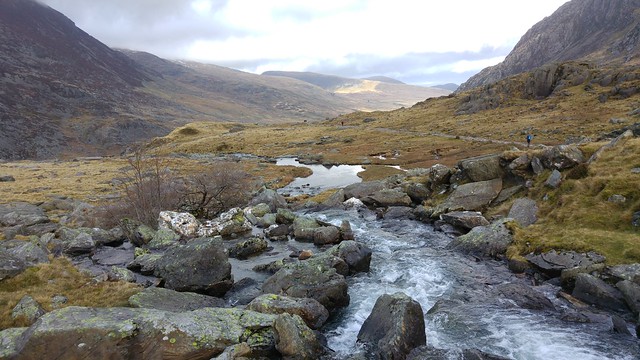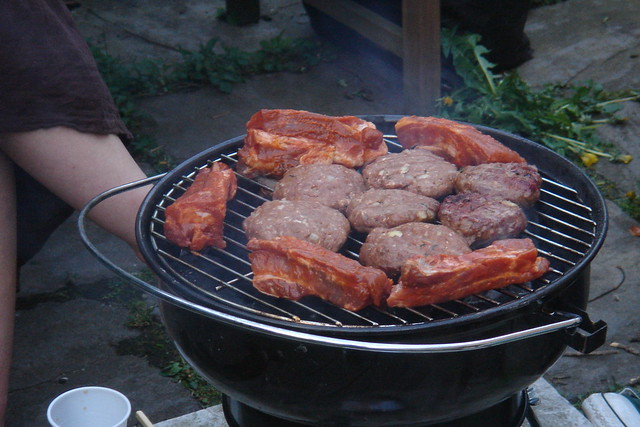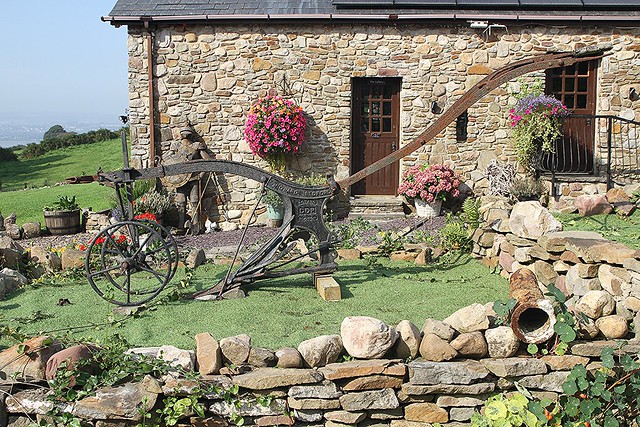Words for end, after and related things in Celtic languages.
Words marked with a * are reconstructions.
| Proto-Celtic | *dīwedom = end |
|---|---|
| Old Irish (Goídelc) | dead [ˈdʲe] = end, conclusion, limit déidenach = final, last deired [ˈdʲerʲəð] = remainder, residue, end, rear, conclusion |
| Middle Irish (Gaoidhealg) | dead, deud, diud = end, conclusion, limit i ndead, inna dead = below, further on, after, behind, since co dead = forever, to the end, always fo deoid = = at last, in the end, ultimately deired = remainder, residue, end, rear, conclusion deiredach = coming at the end, latest, last |
| Irish (Gaeilge) | diaidh [dʲiəɟ / dʲiə] as diaidh = after, behind diaidh ar/i ndiaidh = gradually i ndiaidh [əˈnʲiəɟ / əˈn̠ʲeːj] = after, later, subsequently ina ndiaidh sin [ɪnˠə ˈjiə ʃin] = afterwards, after that deireadh = end, conclusion, termination deireanach = last, late, latter, recent deireanaí = lateness |
| Scottish Gaelic (Gàidhlig) | dèidh [dʲeː] = after an dèidh [ən̪ʲˈdʲeː] = after, behind dèidheanach = last, hindmost deireadh [dʲerʲəɣ] = end, rear, stem, remains, leftovers deireannach [dʲerʲənˠəx] = final, last, ultimate, hindmost, latter, late, tardy, slow, posterior, backward |
| Manx (Gaelg) | jei = afterwards, after, behind jei shoh = henceforth jei-cheeayllagh = retarded, backward jerrey = back, close, conclusion, effect, end, expiration, expiry, extreme, finale, finish jerrinagh = absolute, belated, closing, end, final, last jerrinaght = absoluteness, final, finality |
| Proto-Brythonic | *diweð [ˈlɔːn] = end, ending |
| Old Welsh (Kembraec) | diued = end |
| Middle Welsh (Kymraec) | diuet, diwet, dyuet, diwed, diỽed = end, close, conclusion diwedho, diwed = to end, finish, close diwedar, diweddar = late, recent, modern, deceased |
| Welsh (Cymraeg) | diwedd [ˈdɪu̯ɛð] = end, close, conclusion, consumation, termination, extremity, death, event, issue diweddaf, diwedd(u) = to end, finish, close, terminate, perish, put an end to diweddar [dɪu̯ˈɛðar] = late, recent, modern, deceased diweddaru = to modernize, get or become late diweddaf [dɪu̯ˈɛθav] = last, final, previous, most recent ar y diwedd = in the end, at the end, at last, ultimately, finally o’r diwedd = at last, finally |
| Middle Cornish (Cernewec) | diwedh, dewedh = an end, bound, goal, limit diwedha = late, utmost diwedhas = late diwedhe = to end, finish, accomplish diwedhva = an ending place, end, conclusion |
| Cornish (Kernewek) | diwedh = end, outcome heb diwedh = endlessly, continuously, eternal war an diwedh = at long last, finally, in the long term diwedha = to end, expire diwedhans = expiry diwedhes = late diwedhva = destination, end, ending diwedhys = ended, late, over |
| Old Breton | diued = end |
| Middle Breton | divez, diuez = end diuezaff = last, final |
| Breton (Brezhoneg) | diwezh [ˈdiwːɛ(s)] = end, final diwezhañ [di.ˈweː.zã] = last, final diwezhat [diˈweː(z)at] = late, remained, backward diwezhataat = to postpone, adjorn |
Words marked with a * are reconstructions.
Etymology: from Proto-Celtic *dīwedeti (to stop), *dī- (from, away) and *wedeti (to lead), from Proto-Indo-European *wédʰeti (to lead), from *wedʰ- (to bind, secure, pledge, guarantee, lead) [source]. Words from the same roots include engage, gage, wage, wager and wed in English, and gager (to guarantee, wager, bet) in French [source]. The word Taoiseach (the Head of the Irish government), possibly comes from the same roots [source].
Sources: Wiktionary, Am Faclair Beag, Online Manx Dictionary, Teanglann.ie, eDIL – Electronic Dictionary of the Irish Language, In Dúil Bélrai English – Old Irish glossary, Geiriadur Prifysgol Cymru, Gerlyver Kernewek, Dictionaire Favereau, TermOfis, English – ProtoCeltic WordList (PDF), Etymological Dictionary Of Proto Celtic














